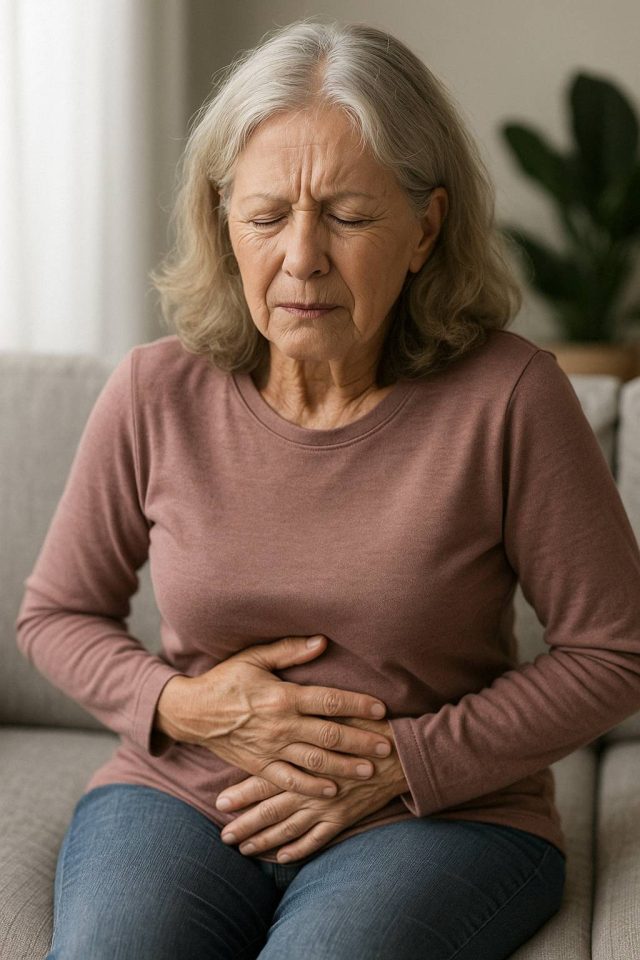
Introduction
Living with ulcerative colitis is more than just managing flare-ups—it’s about adapting to a new normal with strength, strategy, and support. Patients often struggle not only with the physical toll of the disease but also with the emotional weight it carries. So, what does effective ulcerative colitis management look like in 2025? For clinicians and patients alike, the answer is a holistic, proactive approach that includes diet, medication, stress management, and collaborative care.
Table of Contents
- Understanding Ulcerative Colitis
- Medication and Treatment Strategies
- Lifestyle and Dietary Adjustments
- Mental Health and Support Resources
- Conclusion & FAQs
Understanding Ulcerative Colitis
Ulcerative colitis (UC) is a chronic inflammatory bowel disease (IBD) that affects the colon and rectum. Unlike Crohn’s disease, UC is limited to the colon and manifests through symptoms such as persistent diarrhea, abdominal pain, rectal bleeding, and fatigue. However, symptoms vary in severity, and periods of remission can last weeks or months.
Early diagnosis remains essential. Yet, many patients delay seeking help due to embarrassment or misunderstanding of symptoms. Clinicians should be vigilant about symptom tracking tools and encourage early colonoscopy screenings for high-risk individuals. Additionally, educating patients about inflammation markers like C-reactive protein (CRP) and fecal calprotectin can help them become more engaged in their own care.
Medication and Treatment Strategies
Effective ulcerative colitis management relies heavily on a customized medical plan. Treatment goals are not just about controlling flare-ups but achieving mucosal healing and maintaining remission.
First-line therapies often include aminosalicylates like mesalamine, especially for mild-to-moderate cases. Corticosteroids may be necessary during flare-ups but are not suitable for long-term use due to side effects. Immunomodulators, such as azathioprine and 6-mercaptopurine, help reduce dependence on steroids and control inflammation over time.
In more severe or refractory cases, biologics like adalimumab (Humira) and infliximab (Remicade) play a central role. These drugs target specific pathways in the immune system, offering relief where other treatments have failed. Emerging treatments, such as Janus kinase (JAK) inhibitors and sphingosine-1-phosphate receptor modulators, offer promising new options for patients not responding to existing therapies.
When medications fail or complications arise, surgical intervention may be required. Total proctocolectomy with ileal pouch-anal anastomosis (IPAA) is often a last-resort but life-changing procedure for many.
For clinicians, staying informed about the latest FDA approvals and guidelines from the American College of Gastroenterology (ACG) is crucial for making evidence-based decisions.
Lifestyle and Dietary Adjustments
Medication alone is rarely sufficient for long-term success. Many patients benefit from an integrative approach that includes dietary and lifestyle adjustments.
Although no single diet works for everyone, some general principles often help:
- Low-residue diets can reduce bowel movements during flare-ups.
- Anti-inflammatory diets emphasizing omega-3 fatty acids, such as those found in salmon and flaxseed, may reduce symptom severity.
- Probiotic-rich foods like yogurt and kefir may help rebalance gut flora.
- Avoiding trigger foods—often including caffeine, alcohol, spicy foods, and high-fat meals—can minimize discomfort.
Patients must be reminded that dietary changes should be gradual and monitored. Food journals are especially helpful in identifying personal triggers.
Additionally, staying physically active—even with low-impact exercises like walking or yoga—can improve digestion, reduce inflammation, and support mental health. Smoking cessation, adequate hydration, and proper sleep hygiene are also fundamental pillars of ulcerative colitis management.
Mental Health and Support Resources
The psychological burden of ulcerative colitis is often underestimated. Depression, anxiety, and social withdrawal are common, especially among newly diagnosed patients or those facing surgery.
Therapeutic counseling, mindfulness-based stress reduction (MBSR), and cognitive behavioral therapy (CBT) have all demonstrated benefits for UC patients. Integrating mental health screenings into routine GI care can catch issues early and improve overall treatment adherence.
Support groups and online forums, such as those found on Health.HealingWell.com, offer emotional reassurance and practical advice. Patients who feel supported are more likely to manage their condition proactively and report higher quality of life scores.
For professional collaboration, clinicians can refer patients to behavioral health specialists familiar with chronic illness care.
Conclusion
Ulcerative colitis may be a lifelong condition, but it doesn’t have to control a patient’s life. Through a balanced approach that includes medical treatment, diet, lifestyle adjustments, and mental health care, patients can reclaim a sense of stability and hope.
Healthcare professionals play a pivotal role in empowering their patients with information, empathy, and the latest tools for success. The key lies in proactive, personalized ulcerative colitis management that evolves with each patient’s journey.
FAQs
What foods should ulcerative colitis patients avoid?
Foods high in fat, caffeine, alcohol, and spicy seasonings are common triggers. Patients should keep a food journal to track reactions.
Are biologics safe for long-term use in ulcerative colitis?
Yes, biologics are generally safe under medical supervision. Regular monitoring helps detect side effects or diminishing response early.
Can stress make ulcerative colitis worse?
Yes. Stress does not cause UC but can exacerbate symptoms. Mindfulness and counseling often help.
Is surgery a cure for ulcerative colitis?
Surgery can remove the colon and resolve symptoms, but it comes with lifestyle changes and risks. It’s usually considered after other treatments fail.
How often should patients see a gastroenterologist?
Typically, every 3-6 months during remission and more frequently during flare-ups or medication changes.
Disclaimer
“This content is not medical advice. For any health issues, always consult a healthcare professional. In an emergency, call 911 or your local emergency services.”



